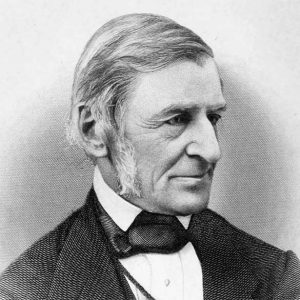We are delighted to announce that Branka Arsić is the recipient of the Ralph Waldo Emerson Society’s 2024 Distinguished Achievement Award.

Branka Arsić is the Charles and Lynn Zhang Professor of English and Comparative Literature at Columbia University. Her scholarship specializes in the literature of the 19th century Americas and its scientific, philosophical and religious contexts. She is the author, most recently, of Bird Relics: Grief and Vitalism in Thoreau (Harvard University Press, 2016), On Leaving: A Reading in Emerson (Harvard UP, 2010), and a book on Melville entitled Passive Constitutions or 7½ Times Bartleby (Stanford UP, 2007). She co-edited (with Cary Wolfe) a collection of essays on Emerson, entitled The Other Emerson: New Approaches, Divergent Paths (University of Minnesota Press, 2010) and (with Kim Evans) a collection of essays on Melville, entitled Melville’s Philosophies (Bloomsbury, 2017).
On Leaving remains required reading for Emerson scholars, and is a pillar in the interpretations of Emerson that stresses his nominalism. Her work also clearly demonstrates Emerson’s broad impact on late nineteenth century European letters, further establishing that Emerson is a significant figure in world literature.
Not only has Branka Arsić distinguished herself in Emerson scholarship, she has demonstrated a capacious curiosity about the contours of nineteenth-century letters. With innovative and incisive investigations into the works of Thoreau, Melville, and Dickinson, she has demonstrated time and again the interconnectedness of the era’s thinkers while also illuminating what is distinctive about each of the representatives who attract her attention. She also admirably extends beyond the nineteenth-century on both sides: reaching back to Mary Rowlandson, Anne Bradstreet, and Jonathan Edwards on the one side and to Gilles Deleuze and Stanley Cavell on the other. Throughout her labors as a critic and theorist, she provides a robust and engaging model of scholarship conducted at the interface of literature and philosophy. In all these dimensions, Arsić exemplifies Emersonian strains of interest in the conduct of language and disciplinary variety.
